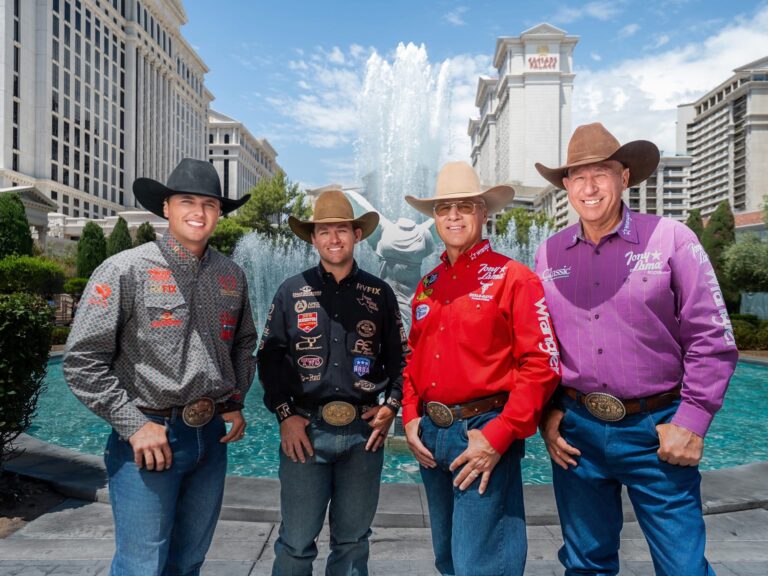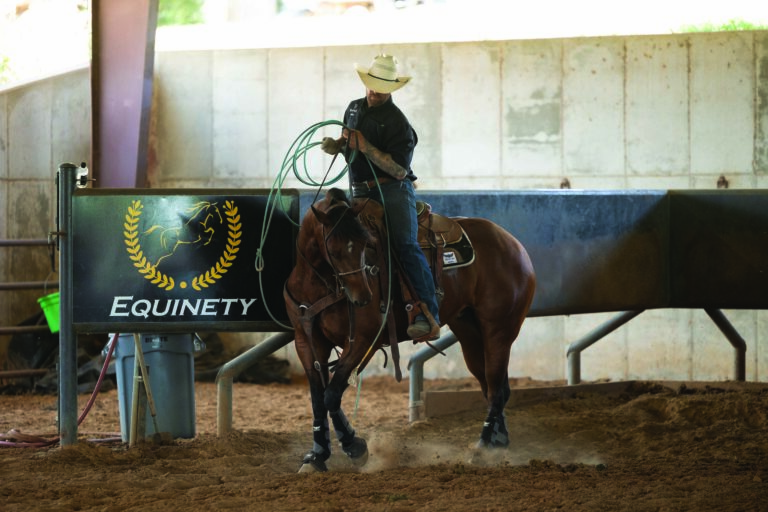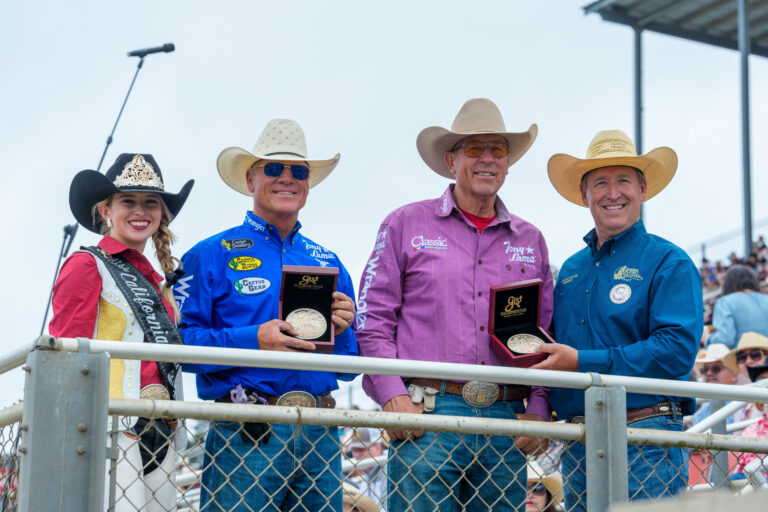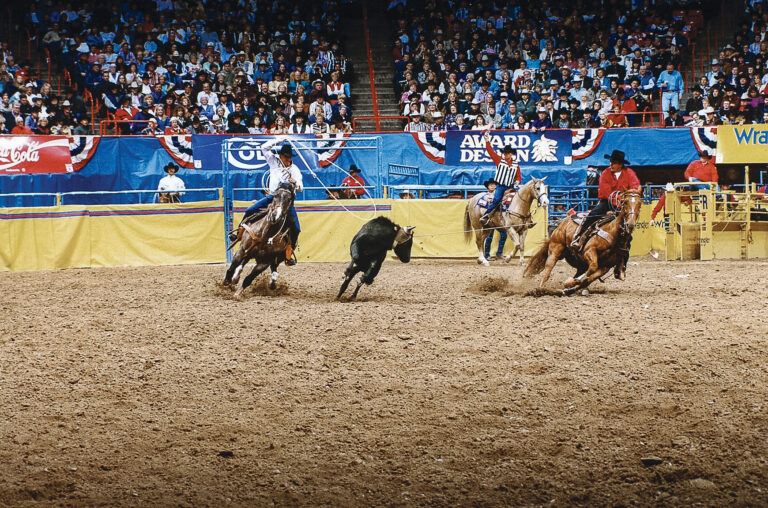Some people think they have to ride younger horses, but I actually prefer the older ones. There are multiple reasons I say that, and at all levels of the game. When kids are starting out, they’re often best off on a seasoned veteran that lets them concentrate on their roping and is safe. Those horses tend to be less expensive, but even if they cost more, they would be worth it for the advancement and safety of a beginner.
At the highest level, it’s no coincidence that most of the horses the big dogs have ridden at the National Finals (Rodeo) over the years have been older. There are, of course, occasional exceptions. Turtle Powell rode his late, great gray horse Vegas at the Finals when he was pretty young. Every horse is different, just like people. But trusting a young one on that big stage—with the loud music and packed house right on top of you—is the exception and not the rule. Generally speaking, pressure gets to younger horses a lot more than the ones who’ve been there and done that.
Ideally, if I got to name an age, I’d pick a horse that’s between 10 to 14 years old. By then, you’re going to know what they are, and they’ve outgrown a few frustrating young-horse habits. I like older, more experienced horses, because they’re solid and reliable. They aren’t hyper or anxious, and they don’t get rattled. They’ve learned to handle the pressure, and you can depend on them. The reason you don’t see ropers competing on green horses is because they make too many mistakes. That takes away from your roping, and can cost you money.
Most of the rodeo ropers tend to ride older horses, ranging from 10 to 20 years old. Some people think a horse that’s 15 is on the downhill slide. I think a horse from 12 to 20 is in his prime. He’s started to mellow, but still has the athletic ability. A lot of younger horses are so wound up that they don’t have the focus an older, calmer horse has.
One of the things that looks attractive to a lot of people about a younger horse is longevity. But a lot of people expect a horse to be done sooner than he actually is. Age really is a number, and if a horse is still good at his job, who cares how old he is? Some people sell a horse when he hits a certain age. If he’s a good one, that makes no sense to me.
I don’t care how old a horse is when you buy him, one horse will not last you your whole career. What matters most is how a horse works for you right now. There is no crystal ball to tell you how many years a horse will last, so the most important question is, “Can I win on him now?” That horse is an important part of your team.
Modern medicine has come a long way, and there are so many management strategies, products and therapies on the market today that can help you get the most out of a horse now and even lengthen his career. Find what works for you and your horse, and take advantage of all of it. Appreciate the good ones, because they don’t come along every day.
Older horses are warriors, and they typically don’t have to be ridden down as much as their younger counterparts. A young, fresh horse isn’t always all that much fun to ride, whereas most older horses are good to go if you basically just keep them in shape.
Bottom line, older horses deserve more respect than they get. They’re valuable. They’re like fine wine, and get better with age. An older horse that knows more than you do can be such a blessing and asset. And they make roping fun.









